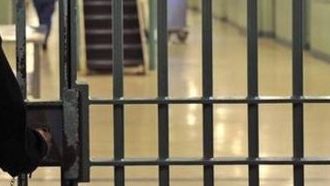Justice Secretary `on brink of asking soldiers to man prison perimeters` after day of protests
The Government is set for immediate talks to try to restore peace to the prison officers` dispute which reportedly came close to a military intervention yesterday.
Nov 16, 2016
By Nick Hudson
The Government is set for immediate talks to try to restore peace to the prison officers` dispute which reportedly came close to a military intervention yesterday.
Justice Secretary Liz Truss was said to be “minutes away” from calling in the Army before the Home Office won a High Court injunction to force 10,000 officers back to work early after their planned `day of protest` on Tuesday (November 15).
Mr Justice Kerr granted an urgent application for the injunction to restrain the Prison Officers Association (POA) from inducing any form of industrial action.
The judge`s order calling for a return to work forthwith or face the threat of imprisonment is said, according to The Sun to have stopped hundreds of personnel from HM Armed Forces being deployed to man jail fences and perimeters when the POA caved in to the ruling at 5pm.
Ms Truss has agreed to meet the union leaders within 48 hours amid claims the prisons are “in meltdown”.
POA chair Mike Rolfe said the chaos in Britains prisons was so bad some officers had compared work to a tour in Iraq, adding: Society needs to back us.
The POA had told its members to stop work in the early hours of Tuesday in the first nationwide action of its kind for nine years, after it claimed negotiations broke down with the Government over prison safety.
Several high-profile trials include the trial of Thomas Mair, who stands accused of killing MP Jo Cox ground to a halt in the walkouts.
The protest temporarily paused trials across the country as only cases involving defendants on bail were able to proceed.
The dispute also halted proceedings against Robert Butler, accused of a murder in Pentonville Prison, and an unnamed man who killed his wife.
The POA is banned by law from striking, but general secretary Steve Gillan admitted its protest was likely to be interpreted as one.
Every prison officer in England was instructed to forgo their duties and only provide support in emergencies, such as fires or serious medical incidents.
The union was protesting against conditions in prisons after a recent study showed that assaults on prison staff rose 43 per cent last year to 5,954. Almost 700 of these attacks were recorded as serious. The number of prison officers has fallen by 10,000 since 2011.
The protest came after a series of high-profile incidents including a riot at HMP Bedford involving 200 inmates, and several prison escapes.
Shadow Justice Secretary Richard Burgon refused to condemn the action and stormed: This is a Secretary of State in denial.
A Secretary of State who has let down our judiciary, lost the confidence of our prison staff, and failed to take effective action in the face of a crisis a crisis of violence in our prisons.
Former Justice Secretary Ken Clarke said the action was quite irresponsible but warned the situation in prisons was scandalous.
He told BBC Radio 4`s The World at One programme: Staff shortages play into it but you have also got to look at why we have got quite so many prisoners there.
We incarcerate a bigger proportion of our population than anybody else in Europe and it hasn`t had any noticeable affect on our crime levels compared to anybody else`s.
The Ministry of Justice (MoJ) welcomed the prison officers` return to work.
A spokesperson said: The Government welcomes the POA decision to stop its unlawful industrial action and the fact that prison officers are returning to work. We have been en


